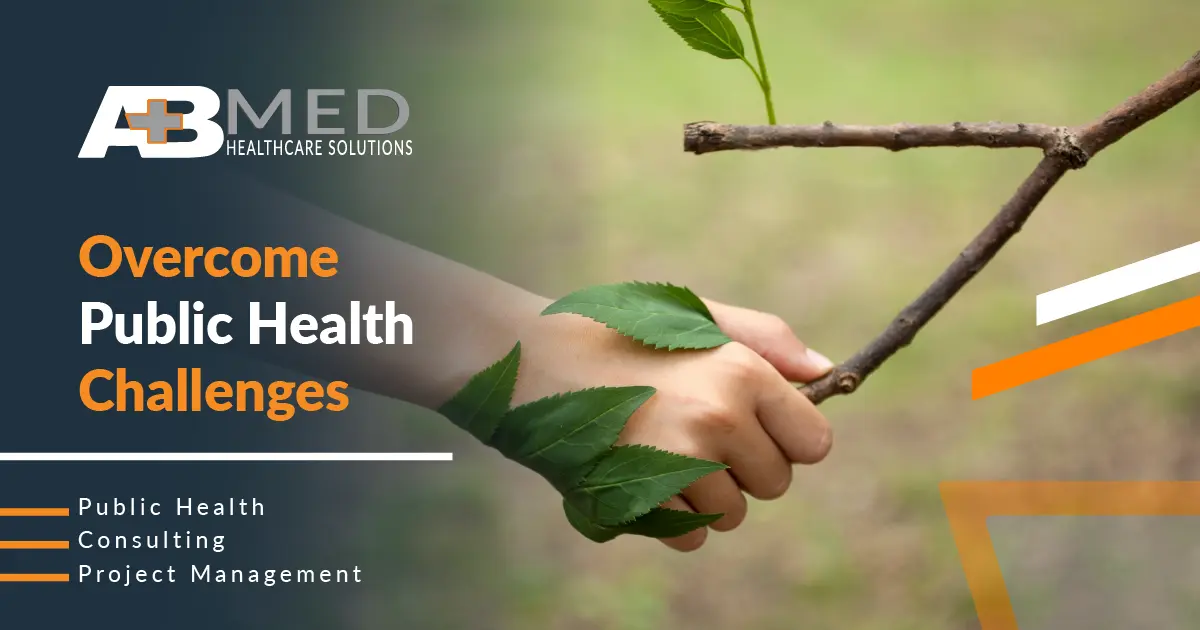Immunization programs play a crucial role in preventing infectious diseases, saving lives, and promoting overall public health. According to the World Health Organization, vaccines prevent between 2 and 3 million deaths each year. [i] However, local governments and healthcare systems face various challenges when implementing effective and efficient immunization initiatives. In this article, we’ll discuss the critical components of successful immunization programs and their significance in fostering better public health outcomes.
#1 Tailored Strategies for Diverse Public Health Challenges
Every region has unique public health challenges, and a one-size-fits-all approach to immunization programs is not effective. A successful immunization program must consider the specific needs and goals of each region, such as local demographic, socioeconomic, and epidemiological factors. The Centers for Disease Control and Prevention (CDC) recommends utilizing community-specific data to inform targeted interventions that address key issues and maximize the impact of immunization programs. [ii]

#2 Comprehensive Stakeholder Engagement
Effective immunization programs require the cooperation and coordination of various stakeholders, including local governments, healthcare providers, community leaders, and the general public. A 2019 study in the journal Human Vaccines & Immunotherapeutics found that fostering strong partnerships and promoting a collaborative approach to public health management led to improved vaccination coverage. [iii]
#3 Data-Driven Decision-Making and Monitoring
Utilizing data is essential for tracking immunization coverage rates, identifying gaps in service delivery, and monitoring the effectiveness of interventions. The Global Vaccine Action Plan 2011-2020 highlighted the importance of data-driven decision-making in enhancing immunization programs worldwide. [iv] Real-time data and evidence-based decision-making can be used to adapt strategies as needed and continuously improve the performance of immunization programs.[iii]
#4 Community Outreach and Education
A well-informed public is key to the success of any immunization program. A systematic review of studies published in BMC Public Health found that community engagement and targeted educational interventions significantly increased vaccine acceptance and uptake rates. [v] Messaging campaigns, educational workshops, and ongoing dialogue with community leaders can all contribute to increasing vaccine acceptance and coverage.
#5 Capacity Building and Training
Strong, capable healthcare systems are the backbone of any successful immunization program. A study by the American Journal of Public Health found that investments in capacity building and training, including clinical training on vaccine administration and logistical support for vaccine storage and transportation, led to strengthened health infrastructure and better immunization outcomes. [vi]
#6 Technology Integration and Innovation
Incorporating cutting-edge technologies and innovative practices into immunization programs can lead to more effective and efficient solutions. A report by UNICEF suggests that leveraging digital health platforms for patient engagement, mobile vaccination clinics for improved accessibility, and other technological advancements can enhance immunization efforts. [vii]
#7 Evaluating and Scaling Success
Ongoing assessments of immunization programs are critical for identifying best practices and refining strategies. By learning from successes and using the findings to inform future approaches, public health experts can scale interventions and deliver even greater impact in the communities they serve.
With these 7 proven paths, governments and healthcare systems can effectively strengthen immunization programs, resulting in better public health outcomes and healthier communities. As the importance of vaccination continues to grow, adopting these strategies will ensure that immunization initiatives meet the needs of diverse populations and create a safer, more resilient world.
Your Partner in Strengthening Immunization Programs: How AB Med Can Help:
As a provider of public health consulting and management services, AB Med Healthcare Solutions specializes in helping local governments and healthcare systems enhance their immunization programs. With a team of experienced professionals and a commitment to evidence-based practices, AB Med can offer tailored strategies, stakeholder engagement, data-driven decision-making, and support for capacity building and technology integration. By partnering with AB Med, organizations can leverage valuable expertise and resources to improve their immunization programs and promote better public health outcomes.
REFERENCES & RESOURCES
- World Health Organization (2020). Vaccines and Immunization. [online] World Health Organization. Available at: https://www.who.int/health-topics/vaccines-and-immunization#tab=tab_1. [Accessed 16 Apr. 2023]
- Anon, (2020). ACIP Vaccination Programs Guidelines for Immunization. [online] Available at: https://www.cdc.gov/vaccines/hcp/acip-recs/general-recs/programs.html. [Accessed 16 Apr. 2023]
- Birkhold, M., Mwisongo, A., Pollard, A.J. and Neuzil, K.M. (2021). Typhoid Conjugate Vaccines: Advancing the Research and Public Health Agendas. The Journal of Infectious Diseases, 224(Supplement_7), pp.S781–S787. doi: https://doi.org/10.1093/infdis/jiab449 [Accessed 16 Apr. 2023]
- www.who.int. (2021). Global Vaccine Action Plan. [online] Available at: https://www.who.int/teams/immunization-vaccines-and-biologicals/strategies/global-vaccine-action-plan [Accessed 16 Apr. 2023]
- www.who.int. (2021). Global Vaccine Action Plan. [online] Available at: https://www.who.int/teams/immunization-vaccines-and-biologicals/strategies/global-vaccine-action-plan [Accessed 16 Apr. 2023]
- Favin, M., Steinglass, R., Fields, R., Banerjee, K. and Sawhney, M. (2012). Why children are not vaccinated: a review of the grey literature. International Health, [online] 4(4), pp.229–238. doi: https://doi.org/10.1016/j.inhe.2012.07.004 [Accessed 16 Apr. 2023]
- www.unicef.org. (n.d.). Grantee: Macro-Eyes | UNICEF Office of Innovation. [online] Available at: https://www.unicef.org/innovation/stories/grantee-macro-eyes [Accessed 16 Apr. 2023]
By: Erik McLaughlin MD, MPH and Aikaterini Papadopoulou, B.Arch






